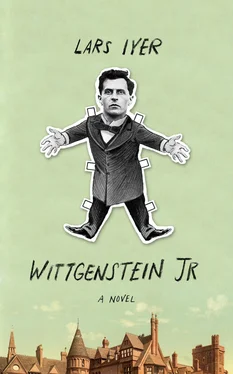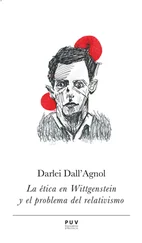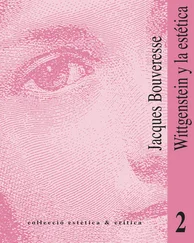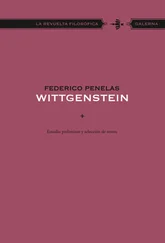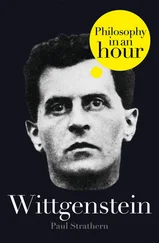Ede remembers field days on Chobham Common, he and his fellows forming up and crawling through the heather, reenacting the great battles of history. Schoolboy-Agincourt. Schoolboy-Waterloo. The schoolboy trenches , boys going over the top into muddy no-man’s-land.
You were supposed to take off your beret when you were ‘shot’, Ede says. Actually, you hoped to be shot, so you could pretend-die in slo-mo, and then sit and eat your sandwiches in the sun …
And you’d trail toilet paper out the window on the train home. And form up again on the platform at Windsor station. And be played back to school by the drums corps from Victoria Barracks …
And all the while, Ede says, he’d dream of finding live weaponry and running amuck on Founder’s Day. Of firing a Gatling gun from the school roof, and hurling mortars from the spiked gables …
Perhaps, when he inherits it, he should turn his family estate into a terrorist training camp, Ede says. Declare war on the bourgeois world. He could form a new Weather Underground, a new Baader-Meinhof. He could kidnap bankers and blow up the stock exchange. Ede laughs.
He’ll probably just turn it into an anarchist commune, Ede says. Grow vegetables on the west lawn. Fill the lake with trout. Live in teepees on the old veranda. And let the house itself fall into ruin. Or, he might just torch the whole thing, like Nero, and rock back and forth on his heels.
Benwell’s too late for politics, and we are too late for politics, Ede says. Too late for the Occupation. Too late to march on the streets …
Guthrie, lying in the snow, quite drunk. An involuntary snow angel. His lips are blue. There’s frost in his wispy beard. He looks noble, we agree. Like some recently deceased Arctic explorer.
The rumour is that Guthrie drinks because of some great and secret tragedy. That Guthrie drinks in the tragic mode —that his drinking is a lament, a eulogy. That Guthrie is ruining his life because he doesn’t want to live. That Guthrie drinks deliberately , knowing where it will lead. That Guthrie is looking for oblivion, because he’s seen too much. Because he’s been out farther than us all …
EDE: Guthrie’s a sot. But we’re all sots! And at least Guthrie’s got a greatness about him.
Ede kicks Guthrie. Nothing. He kicks him again.
Ede unscrews the cap of his hip flask under Guthrie’s nose.
Guthrie stirs.
EDE: Entertain us, Guthrie. Put on a show.
Guthrie’s eyes, bloodshot, blank, looking up at us. Ede administers a pill to Guthrie’s drool-caked mouth, and pours the contents of his hip flask after it.
We wait, stomping our feet to keep warm. Ede does star jumps. I do squat thrusts. Ede throws snowballs at me. I throw snowballs at Ede.
EDE (contemplating Guthrie): To think that he once performed Marcus Aurelius!
We recall Guthrie’s finest hour, his portrayal of the emperor-philosopher.
Doyle’s rooms, at the beginning of term. Salt. Lime. Tequila.
A martial scene: the Romans versus the Barbarians, along the shore of the Danube (Guthrie as the Roman army; Guthrie as the Barbarian horde; Guthrie as the wide river itself). Clouds of dust. The plain covered in carcasses. Groans of the dying (Guthrie groans). Broken spears. The ground slippery with blood. Heaps of the dead (Guthrie as a corpse; Guthrie as a pile of corpses). Lifeless corpses trampled on without mercy. The columns broken back (Guthrie as a broken army, staggering and moaning). The half-slain blocking up the roads …
The imperial encampment: Marcus Aurelius, writing in his tent (Guthrie, all nobility, all gravitas). Marcus, tired of war, tired of a decade of campaigning (Guthrie, weary). Marcus, seeking to triumph over the passions and recognise the will of God in all events (Guthrie, a man of piety, a man of philosophy). Marcus, unwavering even in the midst of his duties (Guthrie, a man of resolve).
The battlefield: Marcus, surveying the scene (Guthrie, eyes on the middle distance). Marcus, speaking to his soul (Guthrie, speaking to his soul): All that is in tune with you, O universe, is in tune with me . Marcus, seeing the bodies of enemy soldiers twisted into impossible shapes (Guthrie, wincing): We must love even those who commit injustices against us . Marcus, seeing the dead faces of his own soldiers turned to the cold earth (Guthrie, shuddering): Despise not death, but welcome it, for nature wills it like all else . Marcus, seeing the blood of his soldiers on the frozen ground (Guthrie, crestfallen): Tomorrow is nothing, today is too late, the good lived yesterday .
Wittgenstein is weary. His face is grey.
He is exhausted, he says, not from doing anything. He is without real life .
If he were only capable of working, he says.
Why is the drive to understand so close to the drive to mis understand? he asks. Why is the urge to think almost identical with the urge not to think ?
Truth sends no news , he says, with unusual emphasis. (Is he quoting?)
Libera me, Domine , he says. (Definitely quoting.)
God is calling him, he says. God is hunting him down. He’s fleeing God’s call. It’s all he’s ever done: flee God’s call.
To reach the end of thought, he says. To bring thought to an end. But at the end of thought, there is also the thought of the end. At the end of thought, there is also the thought of the end of thought …
Any real thinker would go mad, he says. Any real thought is also a mad thought.
He holds his head in his hands. He shakes his head slowly.
What does God want from him? he asks. What does God expect from him?
A shaft of winter light.
He stirs slightly. Has he found an answer? A solution?
A badly timed fit of laughter breaks out somewhere near Mulberry.
Ede (refined laughter). Then the Kirwins (synchronised laughter).
What was it? Mulberry’s gigantic cock drawing (sketched for Doyle’s amusement)? Doyle’s knocking Titmuss’s can of Red Bull into Benedict Kirwin’s open sports bag, in a spasm of hilarity? The copy of XXX Mums , revealed when Benedict Kirwin leaned forward to retrieve the can? Chakrabarti’s squeal when Alexander Kirwin thumped him on the leg to distract the class from XXX Mums ? Okulu, stomping out of the room in indignation at the chaos?
Wittgenstein — looking baffled. Wittgenstein — looking frustrated. What’s wrong with us? What are we laughing at? Has someone told a joke ? Has someone done something funny? He has heard no joke, he says. He has heard nothing funny.
Has he said something funny? he asks. Has he said something ridiculous? A faux pas? A double entendre? He knows how we English love our double entendres.
Our laughter dies away. Silence.
Wittgenstein — looking exhausted.
What can one man do alone? he mutters.
Why do we come to his classes? Wittgenstein asks us. Why, when philosophy is not of the least consequence to us? When we do not need philosophy? When we do not suffer from our need for philosophy?
What is it like not to have an idea in our heads? What is it like to believe in nothing, to be engaged by nothing, to strive for nothing, to suffer for nothing, to have nothing in particular for which to live or die? What’s it like to feel content ? To feel pleased with ourselves ? What is it like to smile at ourselves in the mirror ? What is it like to laugh without fear?
• • •
A Punch and Judy show — that’s what he is, Wittgenstein says. Playing the fool for us. Jingling his cap and bells.
Читать дальше
